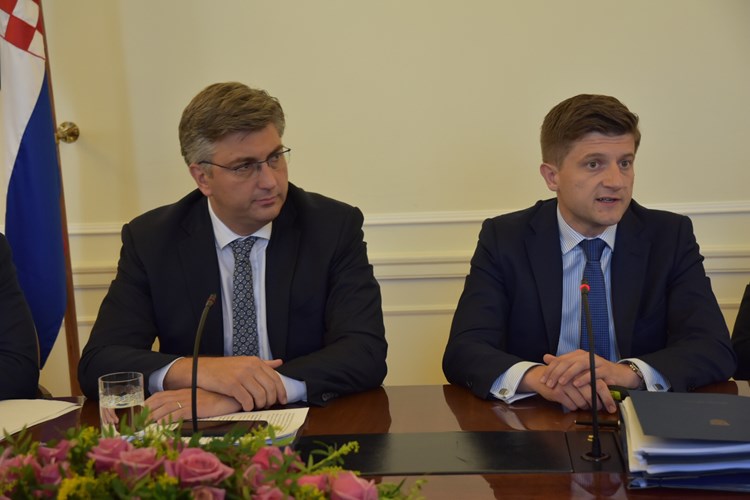- Published: 02.08.2018.
Total tax relief will amount to HRK 6.3 billion
Prime Minister Andrej Plenkovic on Thursday announced that next year further tax cuts were planned in the amount of HRK 2.3 billion, adding that the government hasn't backed down from reducing the general VAT rate by one percentage point but that it is considering, instead of introducing the reduction next year, to do so as of 1 January 2020.
Addressing a press conference, Plenkovic recalled that relief in the first two rounds of the tax reform amounted to about HRK 4 billion and that this latest package of tax changes, as of the start of next year, would lead to a further relief of HRK 2.3 billion.
"All that should facilitate additional personal consumption, employment and investments and, with that, revenue state budget revenues and, finally, economic growth," Plenkovic said.
He said that, under previous legislation, a large portion of the funds was allocated as revenue for local government units, and he believes the effects of that are already visible in their activities, projects and plans, adding that that trend would continue.
"We want to bring Croatia into a situation to get to the investment rating level," Plenkovic said and recalled that three main credit rating agencies had already upgraded Croatia's investment rating and outlook.
With reference to reducing the VAT rate, Plenkovic said that the Croatian Democratic Union's (HDZ) election platform announced a VAT reduction from 25% to 24%.
He said that over the past few months, experts in the finance ministry had analysed in detail the effects of reducing the VAT rate and whether it would be more effective to reduce VAT by 1 pp across the board or reducing VAT from 25% to 13% for certain products.
It was determined that it would be much more useful for Croatian families with lower incomes to have lower prices on some food products like fresh meat, fish, fruit and vegetables and nappies.
"In that way, in this phase, with the rate of 13% on fresh meat, fish, fruit, vegetables and nappies, we would achieve a better and more concrete effect for a wider number of our citizens. However, that does not mean that we would back down from reducing the general VAT rate," he underscored. At the moment, the government is considering the lower VAT rate that was planned for 1 January 2019 to be introduced as of 1 January 2020.
Referring to economic and fiscal policy over the next three years, adopted by the government on Thursday, Plenkovic underscored that the government's key message was that it is continuing with very clear, firm fiscal consolidation.
The government has again forecast an economic growth of 2.8% for this year, 2.7% in 2019 and 2.5% in the following two years.
Taking into account the projected economic growth and forthcoming tax cuts, total state budget revenues for 2019 are projected at HRK 134.2 billion. In 2020, expenditures are expected to increase by 3.6 percent to HRK 139 billion, while in 2021 revenues are likely to go up 1.5 percent to HRK 141.1 billion. The figures are based on the expected growth and the fiscal effects of further tax cuts.
After last year's surplus of 0.8 percent and this year's projected deficit of 0.5 percent of GDP, the budget is expected to show a deficit of 0.4 percent in 2019 before balancing out in 2020 and reaching a surplus of 0.5 percent in 2021.
(EUR 1 = HRK 7.39)
Text: Hina
